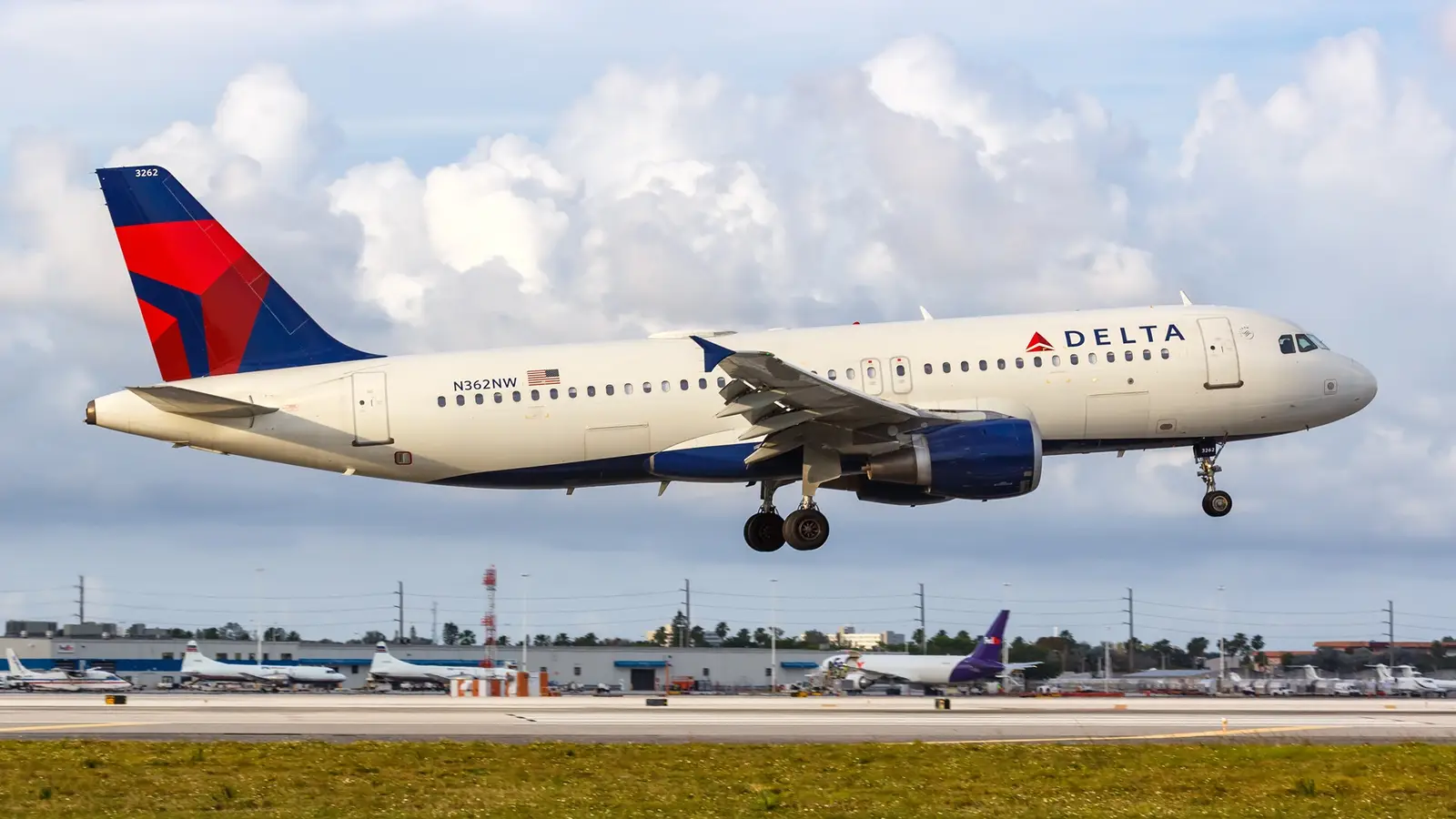
Delta Air Lines is reportedly replacing auxiliary power units (APUs) on its fleet of Airbus A320 family aircraft to address toxic fume leakages. The news comes after long years of requests from flight attendants, who have been calling attention to this problem.
According to a report by CBS News, the Atlanta-based airline said it is replacing APUs on more than 300 Airbus A320 family jets. The initiative, whose costs have not been disclosed, began in 2022, according to the report. Data from ch-aviation shows that Delta Air Lines operates a total of 321 Airbus A320 family aircraft, including A321s, A320s, and A319s.
Brain Injury Risks Linked To APU Leaks
An auxiliary power unit (APU) is a small jet engine located in the tailcone that provides electrical and pneumatic power to the aircraft, primarily when the main engines are off. Occasionally, APUs can leak oil fumes into the cabin, posing health risks to both crew and passengers. The leaks occur because the air that passengers breathe on an aircraft is drawn through the engines. This system, known as “bleed air,” is used in nearly all modern commercial jetliners except Boeing’s 787.
According to an investigative report by the Wall Street Journal on September 13, 2025, fume events have been on the rise, with the problem worsening and little being done to address it. The incidents are largely linked to leaks on Airbus’s A320 family of jets, the report said. Passengers and flight attendants typically describe the odor as metallic.
The fumes are toxic and can cause brain injury and permanent damage to the peripheral nervous system, Robert Kaniecki, a neurologist and consultant to the Pittsburgh Steelers, told the publication. Over the past 20 years, Kaniecki has treated roughly a dozen pilots and more than 100 flight attendants for brain injuries linked to fume exposure on aircraft. One of his patients was a Delta Air Lines frequent flier with top-tier status who suffered an injury in 2023, according to the Wall Street Journal.
Delta’s Airbus A320 Family Fleet Overview
Delta Air Lines has long been a customer of Airbus aircraft. At present, the Atlanta-based airline operates 518 Airbus jets, 321 of which belong to the company’s best-selling A320 family.
Delta’s A320 family fleet consists of 127 Airbus A321-200s, 83 Airbus A321neos, 57 Airbus A319s, and 54 Airbus A320-200s. The average ages are 6.8 years for the A321-200s, 1.9 years for the A321neos, 23.7 years for the A319s, and 29.5 years for the A320-200s.
Looking ahead, the airline is awaiting delivery of 72 additional A321neos, according to ch-aviation data. It has not been disclosed whether these new A321neos will be equipped with the updated APUs. CBS News reported that Delta Air Lines has already replaced the APUs on 90% of its existing Airbus A320 family fleet.
Other Airlines Also Seek Solutions To Fume Issues
In a comment to CBS News, United Airlines CEO Scott Kirby said he has been personally focused on the issue for more than a decade. According to Kirby, United operates a “proactive maintenance program” that monitors engine oil consumption and pressure, and replaces APU seals in advance to prevent oil leaks and burns that could release fumes into the cabin.
The issue of toxic fume leakage from jet engines and APUs has been a long-standing concern. Pilot and flight attendant associations worldwide have called for action, emphasizing that cabin air must be free from harmful or hazardous concentrations of gases or vapors. According to a report by IFALPA, some fume events are severe enough that flight crews must use oxygen masks.
Alternatives to bleed air systems could be bleed-free pressurization or bleed air filtration. According to IFALPA, pressurizing the aircraft without using bleed air eliminates the risk of engine-generated contamination. This approach is used on the Boeing 787 and has been successfully tested on retrofits of the A320 and ATR72.



